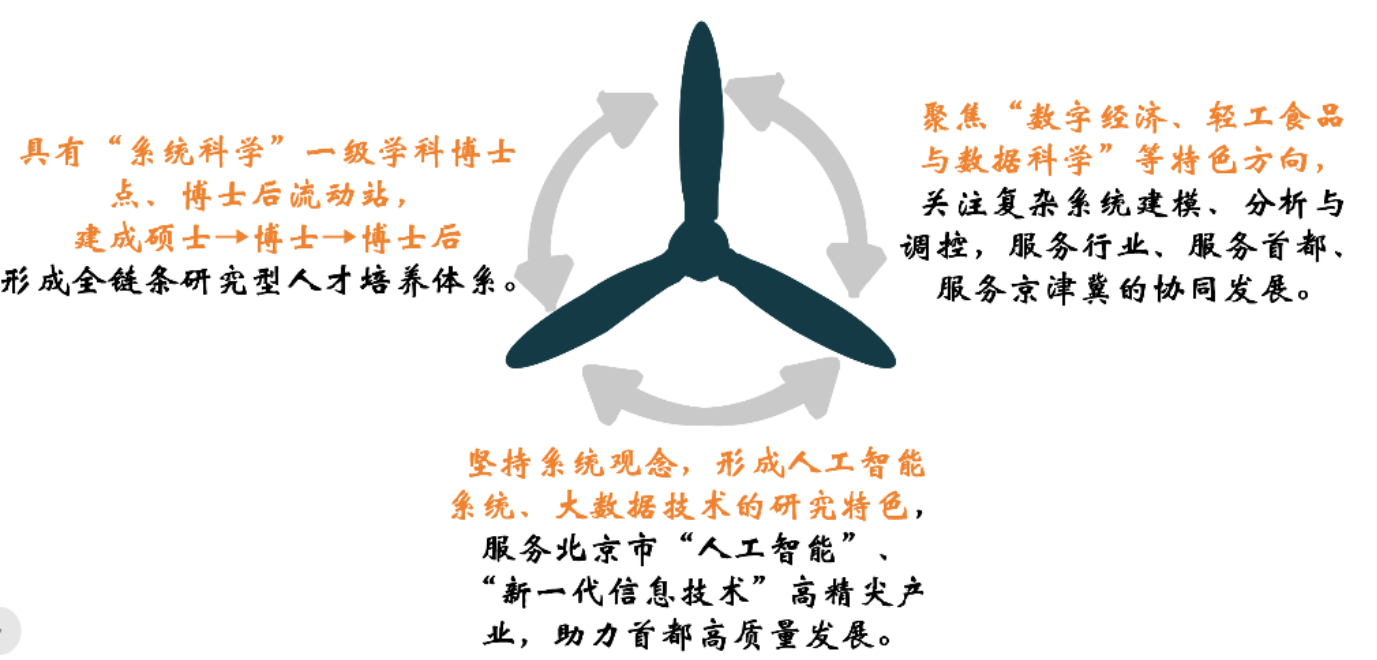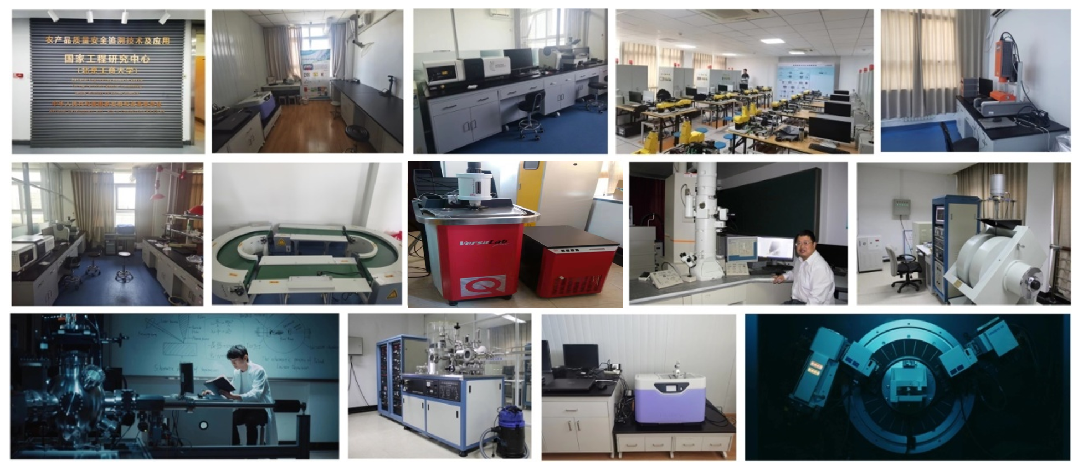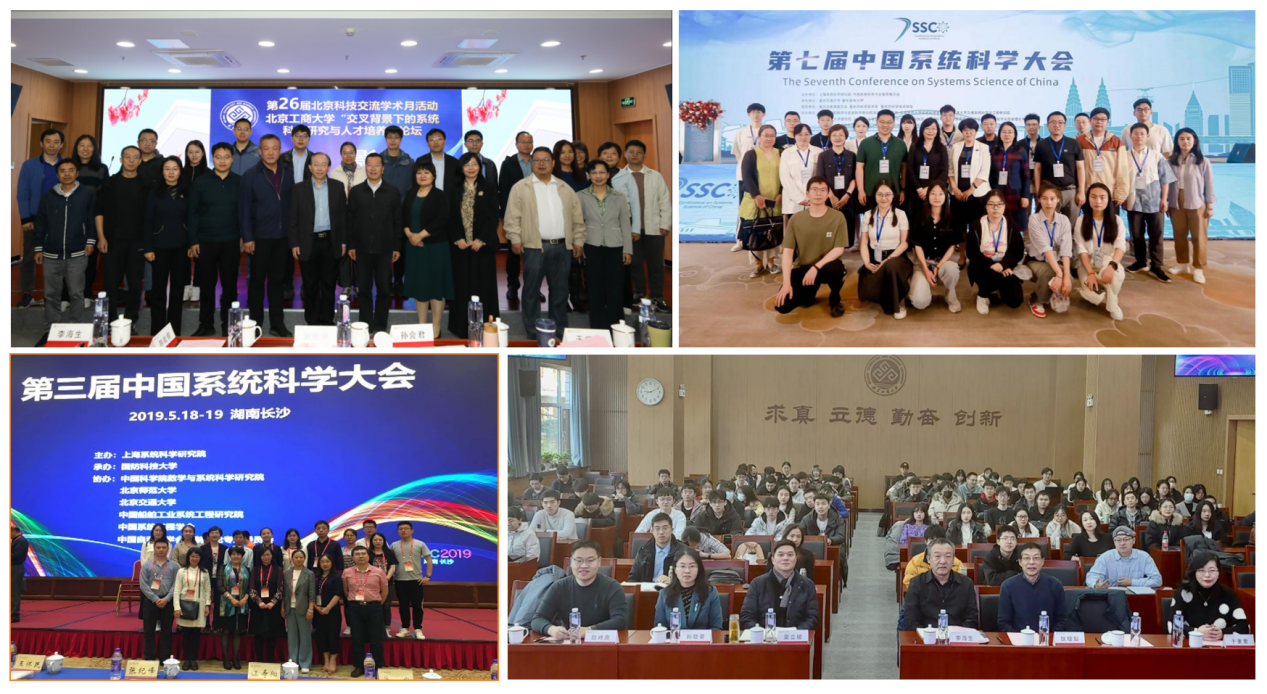
Ph.D
Systems Science
Systems Science: Comprehensive Talent Cultivation and Research Innovation
Discipline Overview
The Systems Science discipline at Beijing Technology and Business University (BTBU) has its roots in the Control Science and Engineering discipline at the former Beijing Institute of Light Industry, established by distinguished experts in control science, Professor Xia Deqian and Professor Lei Yuanchao. Over four decades of continuous growth and development, BTBU founded the Institute of Systems Science in 2020. In 2021, it was approved to establish a doctoral program in the primary discipline of "Systems Science," followed by the approval of a postdoctoral research station in 2023. This marks the formation of a complete, research-oriented talent development system spanning undergraduate to doctoral and postdoctoral levels.

Distinctive Specializations
Rooted in national strategic needs and informed by international cutting-edge advancements, the discipline integrates information technology with system theory and methods. Capitalizing on interdisciplinary strengths and institutional resources, it conducts innovative research in areas such as complex system modeling and control, system analysis and integration, food safety and early warning control, intelligent decision-making and governance in socio-economic systems, artificial intelligence, and big data analytics. These efforts align with the university's educational philosophy and contribute to the development of "Double First-Class" disciplines.

Academic Level and Research Strength
The discipline boasts a strong and diverse faculty team, including 24 doctoral supervisors and 41 master's supervisors across various primary disciplines such as Control Science and Engineering, Management Science and Engineering, Statistical Physics, Mathematics, Theoretical Economics, and Computer Science and Technology. Faculty members include eminent scholars, such as recipients of the State Council's special allowances, Changjiang Young Scholars recognized by the Ministry of Education, and winners of Beijing's municipal teaching excellence awards.
The discipline emphasizes cross-disciplinary integration and has achieved remarkable outcomes. It supports two provincial and ministerial-level key cross-disciplinary fields, namely Applied Economics and Food Science, and hosts seven national (provincial and ministerial) key laboratories and research bases related to Systems Science. Over the past five years, it has received 15 awards at the provincial, ministerial, or higher levels, published 754 high-quality academic papers, obtained 178 authorized invention patents, published 26 monographs, and translated research outcomes into practical applications serving government and industry.

Talent Development and Social Impact
Fostering Virtue and Excellence, Enhancing Quality and Efficiency. The Systems Science discipline upholds the educational philosophy of "going out and bringing in," incorporating various academic initiatives—such as cutting-edge lectures in Systems Science and discipline development forums—into its doctoral program framework, thereby enhancing the quality of talent development. The discipline has forged strategic partnerships with institutions such as the Chinese Academy of Sciences and Tsinghua University, fostering an enabling environment for the establishment and advancement of postdoctoral research stations and the training of postdoctoral scholars.
Addressing Needs, Delivering Impact. Guided by the demands of government and industry, our Systems Science discipline has achieved remarkable outcomes through years of development. The discipline's research and development efforts have yielded impactful outcomes, including national food safety sampling and monitoring platforms, national-level economic policy simulation and intelligent decision-making experimental platforms, complex social sentiment evolution and simulation systems, and IoT platforms for monitoring and managing river and lake water environments. These innovations have served various government agencies—including the State Administration for Market Regulation, the General Administration of Customs, the Ministry of Education, the Cyberspace Administration, and the Beijing Water Authority—while addressing the developmental needs of related industries.


